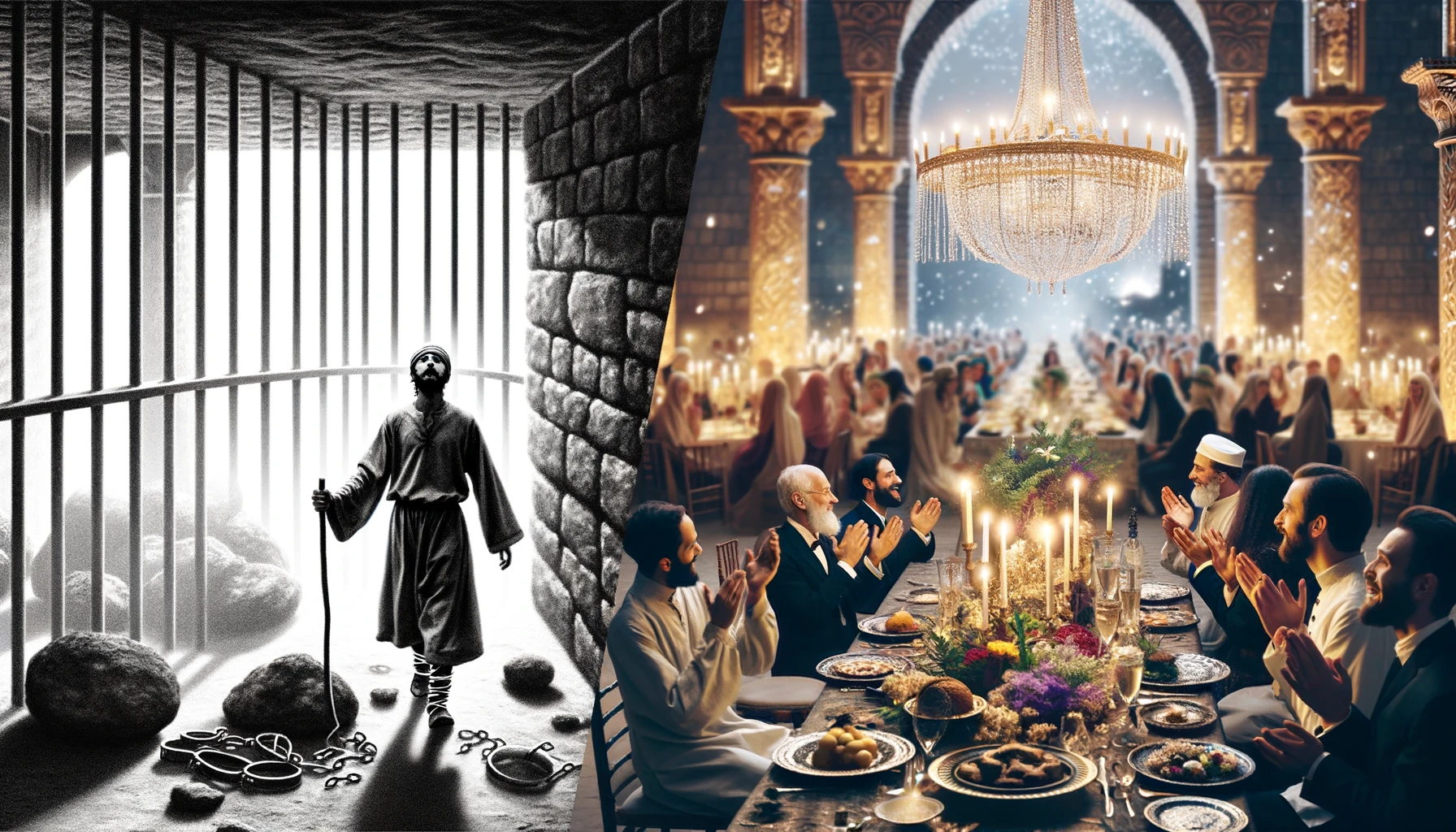We don’t know his story.
We do know he was a thief and he was put to death.
We don’t know the circumstances behind his crime. Was it a crime of desperation? Did he steal to help his family? To pad his pockets? Was he falsely accused? Or was he a thief by profession, who had chosen a life of crime?
The reason his story isn’t told is simple– it doesn’t matter.
Jesus invites him to dine at His father’s table that very evening. He gets eternity in his final moments and what he did before those moments doesn’t matter.
In those final, excruciating moments, between breaths that cost him everything, Jesus reaches out— not with a call for justice, not with a demand for a recount of deeds— but with an offer so lavish, it defies human logic. “Today, you will be with me in paradise,” he assures the thief. This thief, with possibly nothing to his name but a list of wrongs, is promised a place at the highest table.
Why? Because to Jesus, it doesn’t matter what you’ve done, even if society deems it unforgivable. Even if your hands are stained with the worst, even if you’ve spent every day up to this moment living for yourself alone, forgiveness is yours.
It’s a stark commentary on our own harshness, isn’t it? We live in a world where, for a loaf of bread, a life can be discarded as easily as last season’s fashion. Some would argue, even today, for a return to such brutal retributions for crimes like theft, echoing the sentiments of a bygone era that found it acceptable to nail a man to wood for taking what wasn’t his.
Sound too harsh for our society? Think about all the people who are fine with police shooting a black man with a criminal record during a traffic stop — even if the man’s crimes are only simple misdemeanors, or the people who are fine with firing a weapon at someone who looks like they are “up to no good.”
But here, in the age-old story of a thief and a Savior, we find a different kind of justice—one that offers redemption instead of retribution, hope instead of despair. This story tells us that Jesus’ love knows no boundaries, extends beyond our past deeds, reaching even those society has given up on.
In this short but extraordinary encounter, we’re reminded that Jesus’ love is radical, relentless, and utterly scandalous.
He loves the unlovable, forgives the unforgivable, and offers hope to those deemed hopeless. In the Kingdom of God, there’s a place for everyone, even a thief, even those we might think are beyond saving.
It’s a love so profound, so vast, that it encompasses even the ones society would rather forget. And in this love, we all find our invitation to dine at the table, no matter our past, no matter our crimes.
Discover more from Jesus Quest
Subscribe to get the latest posts sent to your email.



